Welcome!
You can find our workshop schedule below. Registration is now open! For convenience, the event flyer and schedule are available for download. More details are forthcoming, so check back often.
Monday, November 13, 2023
- Registration (8 - 9AM)
-
All events will be held in the Ion's Amphitheater.
- Welcome and Introduction: Paul Cherukuri (9 - 9:15AM)
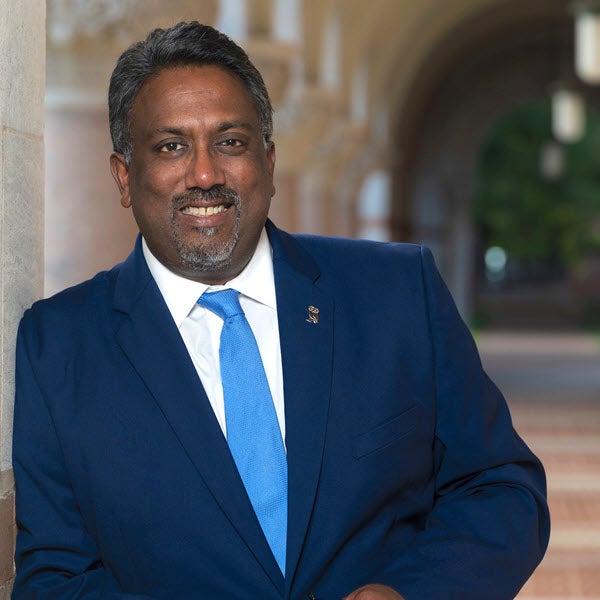
Paul Cherukuri
Vice President for Innovation and Chief Innovation Officer, Rice University
Adjunct Professor, Management and Entrepreneurship
Associate Research Professor, Electrical and Computer Engineering
Paul Cherukuri is Rice University’s first vice president for innovation. As the chief innovation officer, Cherukuri leads Rice’s technology and commercialization infrastructure to translate breakthrough discoveries into inventions for societal benefit. The primary areas of focus for the Office of Innovation are technology translation, startup creation, commercialization and entrepreneurship training. The role also oversees Rice’s programs in and engagement with the Ion.
Cherukuri is a physicist, chemist and med-tech entrepreneur with over 15 years of experience in academia and the pharmaceutical industry. He earned his bachelor’s degree in physics from the University of Kentucky and his Ph.D. in physical chemistry under Nobel laureate Richard Smalley at Rice.
Before returning to Rice in 2014, Cherukuri was a visiting scholar with Harvard University chemistry Professor George Whitesides and a member of the Department of Experimental Therapeutics faculty at the University of Texas MD Anderson Cancer Center. He was also co-founder and chief technical officer of MAReNIR Technologies LLC and a senior scientist at Sanofi, where he developed drug products and biomedical devices.
Prior to being named vice president of innovation, Paul was executive director of the Institute of Biosciences and Bioengineering. During his six-year tenure in the role, Cherukuri engaged with faculty to develop interdisciplinary translational research partnerships with federal and corporate agencies, garnering nearly $37 million in funding aimed at accelerating the development of new technologies into commercializable products.- Inaugural Address: Reggie DesRoches (9:15 - 9:30AM)
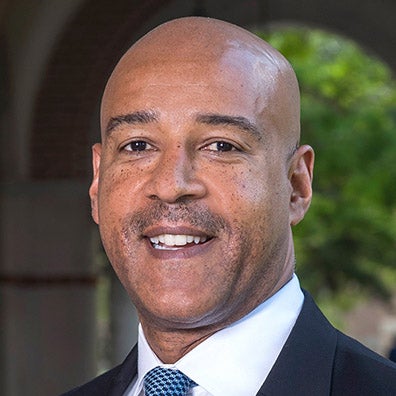
Reginald DesRoches
President, Rice University
Professor, Civil & Environmental Engineering
Professor, Mechanical Engineering
Reginald DesRoches is Rice University’s eighth president. He also serves as a professor of civil and environmental engineering, and professor of mechanical engineering. As president, DesRoches serves as the chief executive officer of the university and its 7,500 students, eight schools and more than 700 faculty. He previously served as Rice's Howard Hughes Provost and William and Stephanie Sick Dean of Engineering.
DesRoches’ top priorities are to enable Rice to reach a new level of distinction nationally and internationally for impactful research, award-winning scholarship and insightful creative work. He also wants to build graduate programs that are of the same distinction as Rice’s top rated undergraduate programs while maintaining Rice’s commitment to diversity, equity, and inclusion.
During his tenure as provost, DesRoches led the university’s academic, research, scholarly and creative activities through the challenges posed by the COVID-19 pandemic, including the sudden suspension of classroom instruction and Rice’s successful conversion to remote learning. In addition, he dramatically increased the university’s research awards, launched several new centers and institutes, and forged new partnerships and programs with institutions and organizations in the Houston area, including the Texas Medical Center.- Keynote-1 - Omar Hatameleh (9:30 - 10:00AM)
-
Omar Hatameleh, Chief Advisor for AI, NASA
With the exponential increase of technology and AI, there will be social and economic impacts on people, organisations and jobs. How can you both align yourself with this change, and distinguish yourself to remain relevant, and to lead with confidence? How can you improve efficiency and adapt to improve economically? What are the impacts of AI on organisations, society and people?
Dr. Omar Hatamleh is a seasoned engineer and leader with 26 years of experience at NASA, where he currently serves as the Chief Advisor for Artificial Intelligence and Innovation at Goddard Space Flight Center and the Lead for NASA IT Strategy at NASA Headquarters. He is responsible for identifying and integrating cutting-edge AI and technology solutions that support NASA's missions and goals, as well as developing and implementing the agency's IT strategy and vision.
In his previous roles, he was the head of Technology Integration for In Situ Resource Utilization (ISRU), where he coordinated NASA's efforts for planetary exploration and resource extraction. He is also the co-author of BetweenBrains, a book that explores the impact of AI and technology on the future of jobs, ethics, society, and economy. He has published over 33 international journal articles in engineering, and has received multiple awards and recognitions from NASA, including the Silver Achievement Medal, the Innovation Award, and the Superior Achievement Award. He holds four engineering degrees, speaks four languages. Dr. Hatamleh has been an invited keynote speaker to various events including G20, Google, IBM, European Investment Fund, and has been featured in various media like CNN, Forbes etc. He is passionate about advancing the frontiers of science and technology, and inspiring the next generation of innovators and explorers.
- Open the Pod Bay Doors, Please: David Alexander (10:20 - 10:50AM)

David Alexander
Director, Rice Space InstituteDavid Alexander is a professor in the Department of Physics and Astronomy, where his primary areas of research are solar physics, exoplanetary physics and earth remote sensing. Alexander also serves as the Director of the Rice Space Institute where he is responsible for providing vision, direction, and leadership, managing the various institute programs, identifying and fostering research opportunities for our faculty, and interacting with government and the space industry. Professor Alexander was awarded an OBE in June 2018 for services to the space industry at home and abroad and to higher education.
David received a Presidential Early Career Award for Scientists and Engineers in 2004 and was appointed a Kavli Frontiers Fellow by the National Academy of Sciences in 2006. He is former Chair of the Solar Physics Division of the American Astronomical Society and former Chair of the Solar Heliospheric Interplanetary Environment program. He has served on many professional committees including the NASA Advisory Council’s Heliophysics Subcommittee, and the NASA Solar Heliospheric Management and Operations Working Group. He currently serves on the advisory boards of SpaceCom, the Sasakawa International Center for Space Architecture and on the editorial boards of Space Science Reviews and ROOM: The Space Journal. He has been named a GlobalScot by the Scottish government and was elected to the Board of Directors of the American Astronautical Society in 2018. He served as Chair of the inaugural Aerospace and Aviation Industry Committee of the Greater Houston Partnership until December 2022 and was recently appointed to the Board of Directors of the Houston Spaceport Development Corporation.
Professor Alexander joined the faculty at Rice in 2003. He received his Bachelor of Science in Natural Philosophy and Astronomy, and his doctorate on Relativistic Cosmological Models from the University of Glasgow.
- Achieving Progressively Earth Independent Medical Operations for Deep Space Exploration - Kris Lehnhardt (10:50 - 11:20AM)
-
Kris Lehnhardt, NASA
Kris Lehnhardt serves as the Exploration Medical Capability Element Scientist for the NASA Human Research Program (HRP). He is an Associate Professor with the Baylor College of Medicine in the Center for Space Medicine and the Department of Emergency Medicine, is an Adjunct Professor with the International Space University, and is a fellow of the Aerospace Medical Association. Dr. Lehnhardt is board certified in emergency medicine in both Canada and the U.S and he works clinically in the Emergency Department at the Ben Taub Hospital in Houston.
A reservist in the Royal Canadian Air Force, a private pilot, and a certified scuba diver, Dr. Lehnhardt has had an active role in NASA’s HRP since 2017. His main research interests focus on the design of advanced medical systems for space exploration, and the provision of medical care in extreme environments. He received a bachelor’s degree in biomedical sciences from the University of Guelph in 1999 and completed his M.D. and emergency medicine residency at Western University in 2003 and 2008, respectively. - PANEL 1: Challenges of Health in Long-Duration Space Travel (11:20AM - 12:35PM)
-
Moderator: Shashi Jain, Evergreen Aviation & Space Museum, ex-Intel
Shashi Jain a Portland-based entrepreneur, innovation leader, and strategic thinker. He most recently served at Intel Corporation as a Senior Strategic Innovation Manager, pathfinding new applications in Healthcare, AI for Space applications and Blockchain. He is an experienced corporate entrepreneur with a track record of incubating ideas that go to production, using Lean Startup, Customer Development, and Rapid prototyping methodologies. He builds frameworks such as the KPI Compass, Decision Quality Canvas, and the Startup Ladder for building and measuring innovation programs. You can read about them in his book "Unstoppable Innovation" (coming 2024)!
Outside of work, he organizes the Portland 3D Printing Lab community, teaches innovation and entrepreneurship to high school students through TYE Oregon, and actively mentors early stage startups. He am co-Founder of Makerforce, a non-profit that 3D printed and delivered 68,000 pieces of PPE during the height of the COVID19 pandemic.
Panelists
John Kalantari, CTO of YRIKKA; Professor at the University of Minnesota
Dr. John Kalantari is an AI/ML scientist serving as the CTO of YRIKKA and Professor at the University of Minnesota. Prior to his current position, Dr. Kalantari served as Professor and Associate Consultant at the Mayo Clinic with faculty appointments in the Department of Surgery, Department of Quantitative Health Sciences, and the Center for Individualized Medicine. He also founded and led the Biomedical Artificial General Intelligence Lab (BAGIL) at Mayo Clinic, an applied and theoretical machine-learning group focused on the development of digital health tools and predictive models for clinical-decision-making, enhancing patient care and broadening healthcare access.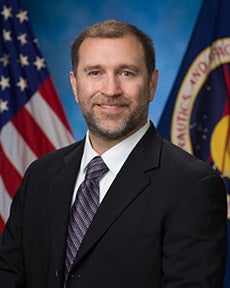
Erik Antonsen, Associate Professor, Baylor College of Medicine
Dr. Erik Antonsen is an Associate Professor of Emergency Medicine with a co-appointment as an Associate Professor of Space Medicine at the Center for Space Medicine, both at Baylor College of Medicine in Houston Texas. He received his BS (1997), MS (2001), and PhD (2004) in Aerospace Engineering from the University of Illinois at Urbana-Champaign and later his MD (2009) from the University of Illinois at Chicago. He completed residency at the Harvard Affiliated Emergency Medicine Residency at Brigham and Women’s Hospital and Massachusetts General Hospital in 2013 and is Board Certified in Emergency Medicine. From 2015 to 2018 he served as the Element Scientist for Exploration Medical Capabilities in NASA’s Human Research Program. From 2018 to 2021 he served as the Assistant Director for Risk Management for the Human Health and Performance Directorate at NASA Johnson Space Center. There he was responsible for chairing the Human System Risk Board and working with human spaceflight programs to prioritize research and operational investments that protect human health and performance in space. He practices clinically at Ben Taub General Hospital in Houston, TX. Current research interests include space medicine, risk network analysis, AI in medicine, and space health systems design.
Alexander Lavin, Founder, Pasteur; IS and AI Advisor, NASA
Kris Lehnhardt, NASA
Kris Lehnhardt serves as the Exploration Medical Capability Element Scientist for the NASA Human Research Program (HRP). He is an Associate Professor with the Baylor College of Medicine in the Center for Space Medicine and the Department of Emergency Medicine, is an Adjunct Professor with the International Space University, and is a fellow of the Aerospace Medical Association. Dr. Lehnhardt is board certified in emergency medicine in both Canada and the U.S and he works clinically in the Emergency Department at the Ben Taub Hospital in Houston.
A reservist in the Royal Canadian Air Force, a private pilot, and a certified scuba diver, Dr. Lehnhardt has had an active role in NASA’s HRP since 2017. His main research interests focus on the design of advanced medical systems for space exploration, and the provision of medical care in extreme environments. He received a bachelor’s degree in biomedical sciences from the University of Guelph in 1999 and completed his M.D. and emergency medicine residency at Western University in 2003 and 2008, respectively. - Startup Presentation: Anshumali Shrivastava (1:35 - 2:05PM)
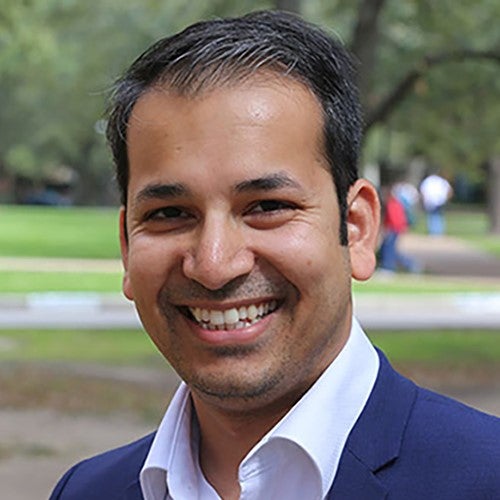
Anshumali Shrivastava, Rice University, CEO Third Eye
- PANEL 2: Analyze Research Data with AI at the Edge in Space (2:05 - 3:05PM)
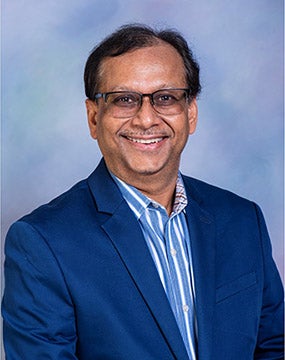
Moderator: Sanjoy Paul, Accenture
Dr. Sanjoy Paul is a Managing Director at Accenture, globally leading Systems and Platforms technology innovations for Accenture covering AI-Systems, Robotics, 5G, and Digital Twin. He was the Director of the AI Houston Institute and a Lecturer in the Computer Science Department of Rice University.
Recognized in the industry as an innovator, disruptive entrepreneur, and an authority in Networking, AI and IoT, he has a proven track record of converting new technology ideas into successful businesses multiple times during his 25+ year career. He continues to innovate in the field of AI and apply the latest AI technologies to solve complex problems in different industries including Life Sciences and Healthcare.
Sanjoy is a Fellow of the IEEE, an ex-Editor of IEEE Transactions on Networking, author of 2 books published by Wiley and Kluwer Academic, and is a regular invited speaker in the universities, technology forums and industry panels.
Sanjoy holds a Bachelor of Technology degree from IIT Kharagpur, an M.S and a Ph.D. degree from the University of Maryland, College Park, and an MBA from the Wharton Business School, University of Pennsylvania.
Panelists
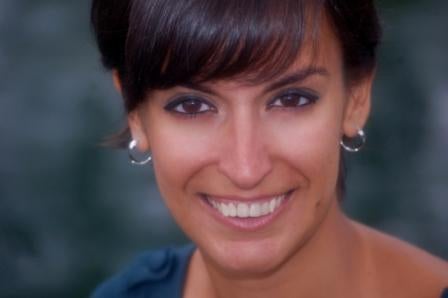
Nelli Babayan
Director, Azure Data & AI Analytics, Microsoft Federal
Dr. Nelli Babayan is Director of Azure Data & AI Analytics at Microsoft Federal supporting NASA and the Department of Energy. She leads a virtual team of technical, partner, and consulting resources to advance cloud-based Data and AI related projects, using the latest advancements in Azure-based data management, data science, and machine learning capabilities. She has previously worked at DC think-tanks, lectured at university level, and led multi-national projects funded by USAID and the European Union.Sacha Abinader, Accenture
Arko Barman, Rice University
- Steven Rader (3:05 - 3:35PM)
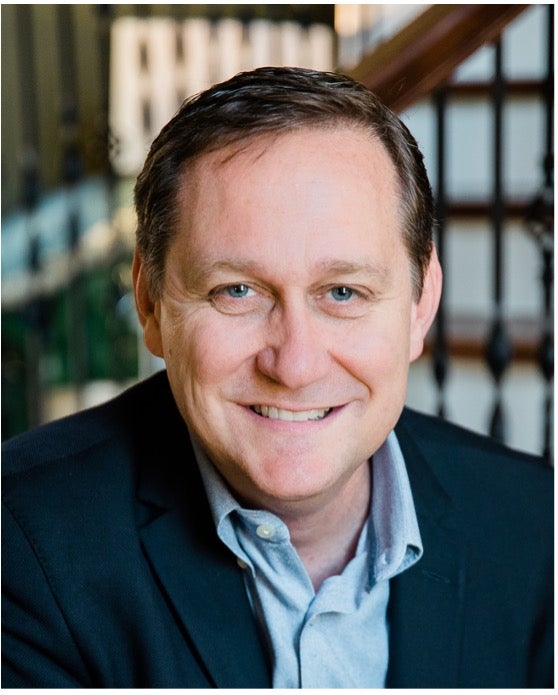
Steven Rader, NASA
Steve currently serves as the Program Manager of NASA’s Center of Excellence for Collaborative Innovation (CoECI) and the NASA Tournament Lab (NTL) which are working to infuse challenge and crowdsourcing innovation approaches at NASA and across the federal government. CoECI focuses on the study and use of curated, crowdsourcing communities that utilize prize and challenge-based methods to deliver innovative solutions for NASA and the US government.
Steve has worked with various projects and organizations to develop and execute over 100 different challenges. He speaks regularly about NASA’s work in crowd-based challenges and the future of work both publicly and internally to the NASA workforce to promote the use of open innovation tools.
Steve has a Mechanical Engineering degree from Rice University and has worked at NASA’s Johnson Space Center for 34 years. Prior to joining CoECI/NTL, Steve worked in mission control, flight software development for the Space Shuttle and International Space Station, command and control systems development for the X-38, and led the Command, Control, Communications, & Information (C3I) architecture definition for the Constellation Program.- Powering Space with Microsoft AI: Nelli Babayan (3:35 - 4:05PM)

Nelli Babayan
Director, Azure Data & AI Analytics, Microsoft Federal
Dr. Nelli Babayan is Director of Azure Data & AI Analytics at Microsoft Federal supporting NASA and the Department of Energy. She leads a virtual team of technical, partner, and consulting resources to advance cloud-based Data and AI related projects, using the latest advancements in Azure-based data management, data science, and machine learning capabilities. She has previously worked at DC think-tanks, lectured at university level, and led multi-national projects funded by USAID and the European Union.- PANEL 3: Trusting AI in Applications of Ultimate Consequence (4:05 - 5:20PM)
-
While technologies such as AI and machine learning can amplify the capabilities of automated systems, they also introduce risk. Hear from leading spaceflight operations experts as they discuss technical and cultural challenges related to the use of AI and automated systems in the hazardous arena of human spaceflight. The discussion will explore what risks exist, what rewards can be gained, and what safeguards and mitigations can be used to protect astronauts, vehicles, and missions.
Moderator: Laura Lucier, NASA
Panelists
Kenton Kirkpatrick, Robotics Operations Flight Controller, NASA
Kevin Gordon, Director of Aerospace Software Engineering, Firefly Aerospace
Richard Morency, Human Factors Specialist, NASA
Rahul Suresh, Exploration Medical Integrated Product Team Co-lead, NASA
Tuesday, November 14, 2023
- Welcome and Introduction: Paul Cherukuri (9:00 - 9:15AM)
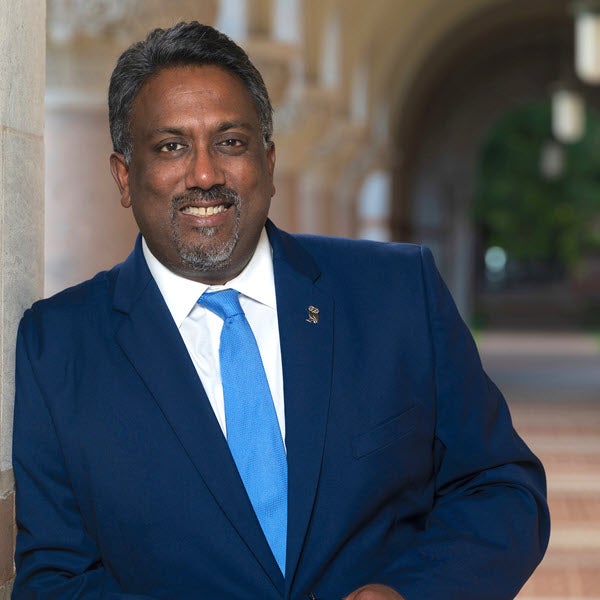
Paul Cherukuri
Vice President for Innovation and Chief Innovation Officer, Rice University
Adjunct Professor, Management and Entrepreneurship
Associate Research Professor, Electrical and Computer Engineering
Paul Cherukuri is Rice University’s first vice president for innovation. As the chief innovation officer, Cherukuri leads Rice’s technology and commercialization infrastructure to translate breakthrough discoveries into inventions for societal benefit. The primary areas of focus for the Office of Innovation are technology translation, startup creation, commercialization and entrepreneurship training. The role also oversees Rice’s programs in and engagement with the Ion.
Cherukuri is a physicist, chemist and med-tech entrepreneur with over 15 years of experience in academia and the pharmaceutical industry. He earned his bachelor’s degree in physics from the University of Kentucky and his Ph.D. in physical chemistry under Nobel laureate Richard Smalley at Rice.
Before returning to Rice in 2014, Cherukuri was a visiting scholar with Harvard University chemistry Professor George Whitesides and a member of the Department of Experimental Therapeutics faculty at the University of Texas MD Anderson Cancer Center. He was also co-founder and chief technical officer of MAReNIR Technologies LLC and a senior scientist at Sanofi, where he developed drug products and biomedical devices.
Prior to being named vice president of innovation, Paul was executive director of the Institute of Biosciences and Bioengineering. During his six-year tenure in the role, Cherukuri engaged with faculty to develop interdisciplinary translational research partnerships with federal and corporate agencies, garnering nearly $37 million in funding aimed at accelerating the development of new technologies into commercializable products.- Fireside Chat: Doug Terrier (9:15 - 10:00AM)
-

Fireside Chat: Doug Terrier, Associate Director for Vision and Strategy, NASA Johnson Space Center
Douglas Terrier
Associate Director for Vision and Strategy
NASA Johnson Space CenterDr. Douglas Terrier serves as the Associate Director for Vision and Strategy at NASA's Johnson Space Center and is a senior leader in the Center Director office. In this role, Terrier is responsible for leading the strategy, creation, integration, and overall execution of JSC’s ongoing transformation initiatives revolutionizing the center’s policies, plans, and processes around workforce, facilities, and products to advance human spaceflight. He provides executive and functional leadership to expand the center’s collaboration across the agency, industry, academia, and international community, to ensure alignment with NASA's strategic plan and missions. Terrier serves as overall change advocate and decision maker for the major center transformation goals and ensures both horizontal and vertical coordination and alignment with the agency and across center organizations.
Prior to his current position, Terrier was NASA's Chief Technologist serving as the principal advisor to the NASA administrator on technology policy and investment strategy, and advocate for technology with Congress, the White House, industry, academia and other federal agencies. He previously served as Johnson’s chief technologist, advising the center director on technology, and acting as the center point of contact for the agency Chief Technologist and the Space Technology Mission Directorate. Terrier also served as the deputy director of Johnson’s Strategic Opportunity and Partnership Development Office, as well as associate director of engineering, where he led teams responsible for design and development of spacecraft for NASA’s human space exploration program.
Terrier worked in the commercial aerospace sector for a total of 23 years with Lockheed Martin, General Dynamics and General Electric Aircraft Engines. He was responsible for international business development for Lockheed Martin in the Asia/Pacific region, supporting major successful campaigns including the Australian Joint Strike Fighter campaign, which was worth $12B; and the Singapore F-16 Peace Carvin Program, worth $4 billion. Terrier managed Lockheed Martin’s executive strategy team in their successful bid for the Department of Defense’s Joint Strike Fighter program, worth $500 billion.
As an engineering project manager for Lockheed Martin, Terrier led several highly successful Department of Defense development projects on flight programs including the F-35 Joint Strike Fighter international variants and block upgrade program; the F-22 Raptor fighter program; the A-12 Lightning program; the National Aerospace Plane; and several classified programs.
Terrier earned a Ph.D. in aerospace engineering and a master's degree in mechanical engineering from the University of Texas. He was awarded a Doctor of Science honoris causa from the University of Warrick in England for his work in organizational strategy. He also completed the Carnegie Mellon Graduate School of Industrial Management program with the Lockheed Martin Leadership Institute. Terrier holds patents for his work in aerospace propulsion and has published numerous technical papers. He earned the Lockheed Martin "Outstanding Technical Achievement” award on four occasions, several NASA “Superior Technical Accomplishment” awards, and the NASA Leadership medal.
Guest
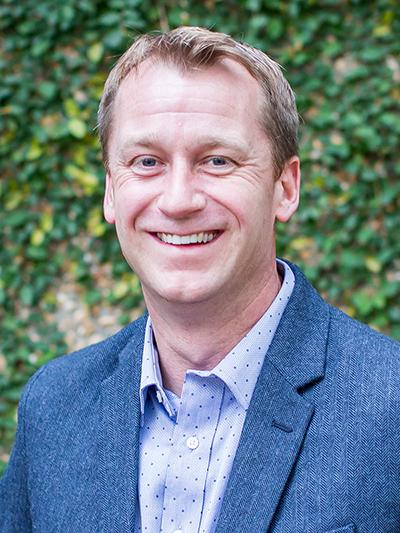
Nick Skytland, Johnson Space Center
Nick Skytland is the Chief Technologist at the Johnson Space Center (JSC) and Director of the Business Development and Technology Integration Office where he is focused on helping NASA return to the Moon through open innovation, technology development, technology transfer and strategic partnerships.
Skytland started his career as an engineer in the Neutral Buoyancy Laboratory training astronauts for space walks. He later served as the Project Manager for the EVA Physiology, Systems, and Performance (EPSP) and Digital Astronaut Project at JSC, Program Manager for the Open Innovation and Data Science programs at HQ and most recently was the Agency Talent and Technology Strategist in the Office of Human Capital Management at NASA HQ where he led transformation and modernization initiatives. Skytland launched the International Space Apps Challenge, created the 1958 Co-working Space, authored the Future of Work study and established the Agency’s Talent Marketplace.
He is an avid adventurer, experienced diver, and a dedicated triathlete who has completed 23 Ironman races.
- Paving the Way for AI on Space Stations and Beyond: Jason Aspiotis (10:20 - 10:50AM)
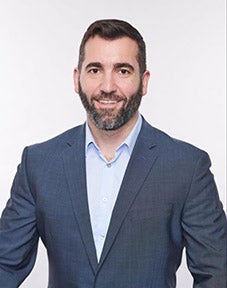
Jason Aspiotis,
Director, In-Space Infrastructure & Logistics, Axiom Space
Jason leads Axiom Space's strategy and services development in national security, orbital data infrastructure, Space mobility and logistics (SML), and in-Space servicing, assembly, and manufacturing (ISAM). Jason has 20+ years of experience in technical, organizational and project leadership, R&D, systems engineering, strategy, finance, and business development in the Space, defense, and financial technology industries. Prior to Axiom Space he was CEO of Finsophy, a Senior Associate at Booz Allen Hamilton, and a Chief Engineer at Raytheon. He has BS degrees in Physics and Astrophysics, a MS in Applied Physics, and a MS in Engineering Management.
- Steve Smith (10:50 - 11:20AM)
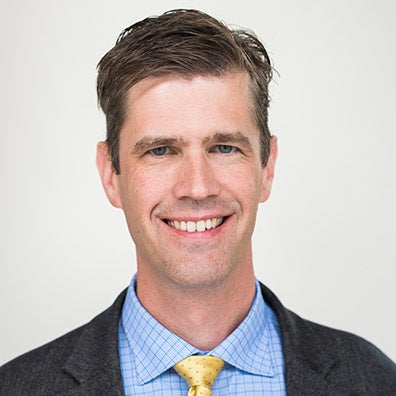
Steve Smith
Flight Operations Director, Blue Origin
Steve Smith is a leader in innovation with extensive experience in aerospace, R&D, high-tech, and product development.
Currently, Steve is serving as Director of Flight Sciences & Human Integration at Blue Origin where he is leading an organization of scientists, engineers, and R&D labs building a road to space. Steve’s team advances the state-of-the-art of autonomous spacecraft by developing space Navigation technologies, creating high-fidelity models & simulations, establishing human-centered design practices, supporting end-to-end avionics testing, and driving R&D of new mission critical technologies.
Prior to Blue Origin, Steve served as Director of Innovation & Product Development at FlightSafety International, a wholly-owned subsidiary of Berkshire Hathaway, and a leading provider of virtual flight simulators. In this role, Steve led multi-disciplinary teams innovating a wide range of new, industry-leading flight simulator and pilot training technologies and products. Steve is a patent holder, a recipient of numerous corporate and industry awards, and a frequent public speaker.
Believing a rising tide of innovation raises all boats, Steve also advocates and promotes innovation in the community by serving on the Advisory Board of Advanced Air Mobility for Tulsa Innovation Labs, on the Board of Directors for the Tulsa Air & Space Museum, and as a mentor, judge, and advisor with MassChallenge, a zero-equity startup accelerator.
Steve holds an MBA from MIT Sloan School of Management and Bachelor & Master of Science degrees in Aerospace Engineering from the University of Kansas.- PANEL 4: Applications of AI in Space Industry & the Role of the Ecosystem (11:20AM - 12:35PM)
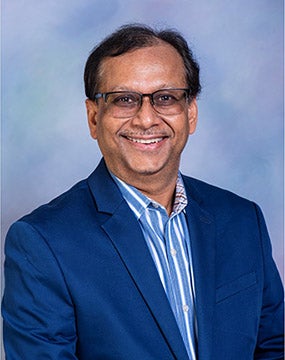
Moderator: Sanjoy Paul, Accenture
Dr. Sanjoy Paul is a Managing Director at Accenture, globally leading Systems and Platforms technology innovations for Accenture covering AI-Systems, Robotics, 5G, and Digital Twin. He was the Director of the AI Houston Institute and a Lecturer in the Computer Science Department of Rice University.
Recognized in the industry as an innovator, disruptive entrepreneur, and an authority in Networking, AI and IoT, he has a proven track record of converting new technology ideas into successful businesses multiple times during his 25+ year career. He continues to innovate in the field of AI and apply the latest AI technologies to solve complex problems in different industries including Life Sciences and Healthcare.
Sanjoy is a Fellow of the IEEE, an ex-Editor of IEEE Transactions on Networking, author of 2 books published by Wiley and Kluwer Academic, and is a regular invited speaker in the universities, technology forums and industry panels.
Sanjoy holds a Bachelor of Technology degree from IIT Kharagpur, an M.S and a Ph.D. degree from the University of Maryland, College Park, and an MBA from the Wharton Business School, University of Pennsylvania.
Panelists

Anshumali Shrivastava, Rice University, CEO Third Eye
Lui Wang, NASA
David C. Kelldorf, NASA
- Improving Spaceflight Imagery with Machine Learning - Kenton Fisher and Alex Stoken (1:35 - 2:05PM)
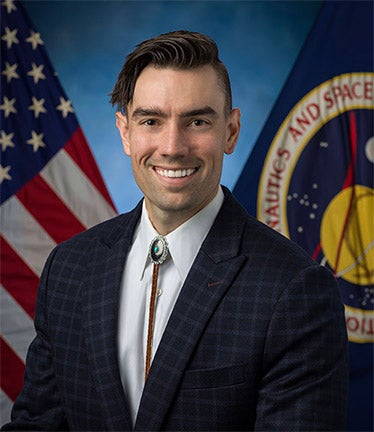
Kenton Fisher
Johnson Space Center
Kenton Fisher is the lead of the Earth Science and Remote Sensing (ESRS) Group and acting lead of the Image Science and Analysis Group (ISAG) within the Astromaterials Research and Exploration Science (ARES) Division at Johnson Space Center. He is the principal investigator of the Crew Earth Observations (CEO) facility, a part of ESRS, which operates aboard the International Space Station (ISS). In his role leading ESRS and CEO, Kenton pursues Earth science research, proposal development, and technology development for remote sensing research. As ISAG lead, he directs image science, photogrammetry, and mission operations support for all human spaceflight vehicles including the ISS and Orion programs. He has a PhD in Geology from Texas A&M University and a Masters in Systems Engineering from University of Houston-Clear Lake.
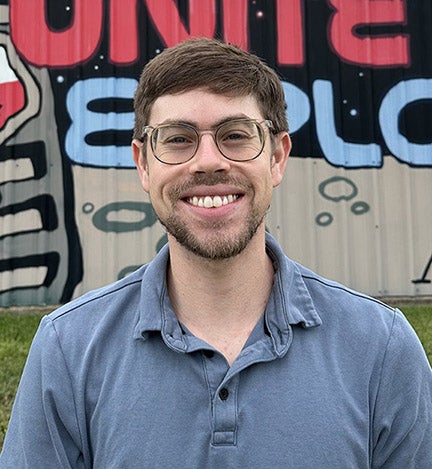
Alex Stoken
Jacobs
Alex Stoken is a data scientist at Jacobs, working in the Earth Science and Remote Sensing Unit (ESRS) and Exploration Science department at NASA Johnson Space Center. Alex specializes in machine learning and computer vision, with the aim of furthering the NASA mission through these techniques. Recent work includes visual localization of Astronaut Photography of Earth, lunar boulder detection algorithms, and object detection systems for space hardware. He has a Masters in Computer Science from the University of Texas at Austin and a Bachelors in Physics and Math from the University of Arizona.
- Autonomy for Robonaut 2: Planning for Complex Systems: Zachary Kingston (2:05 - 2:35PM)
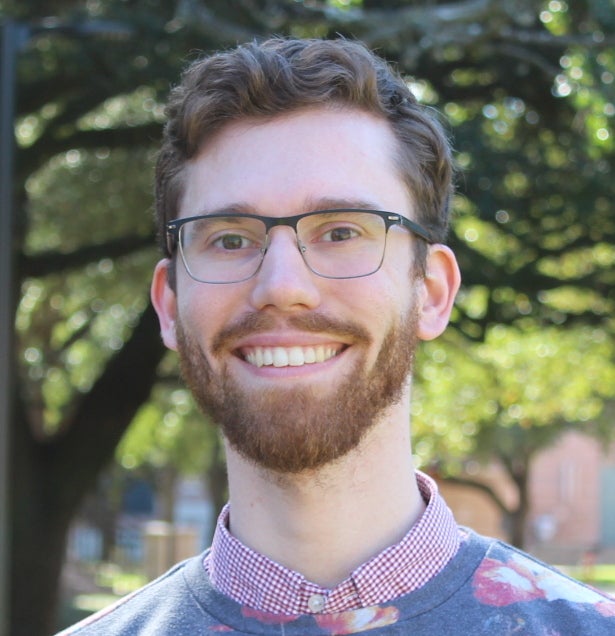
Zachary Kingston
Postdoc Research Associate, Rice University
ZK is a postdoctoral research associate and lab manager for the Kavraki Lab at Rice University under the direction of Dr. Lydia Kavraki, where he also received his doctorate. During his doctoral studies, ZK was funded by a NASA Space Technology Research Fellowship and worked with the Robonaut 2 team at NASA JSC. His research interests lie in algorithmic robotics, focusing on robot motion and manipulation planning, planning with constraints, and good implementations of planning algorithms.
- Autonomous Data Analysis and AI for Cis-lunar Applications: Martin Heyne (2:35 - 3:05PM)
-
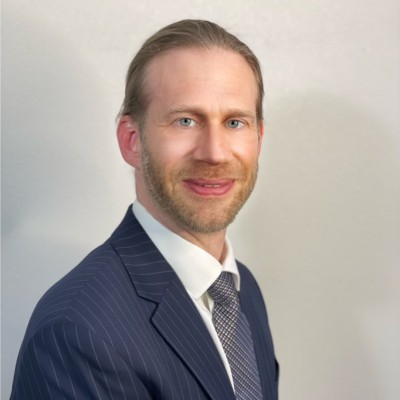
Martin Heyne, Intuitive Machines
Dr. Martin Heyne has extensive experience in aerospace R&D as GN&C specialist.
As strategy lead at Intuitive Machines he works to establish a cis-lunar economy by developing and deploying space infrastructure to enable commercial access to the Moon.
Before focusing on commercial use of space, Dr. Heyne worked at NASA JPL and JSC where he developed sensor models and navigation algorithms for interplanetary missions and spacecraft Entry, Descent and Landing. With this focus on statistical estimation methods and measurement processing, AI and autonomous data processing for space applications are a direct extension of concepts he pursued for more than 25 years.
Dr. Heyne holds a doctorate from the University of Texas in aerospace engineering and an MBA from RICE University’s Jones School of Business. - Presentation of Innovative Ideas from the breakout session (3:05 - 4:05PM)
-
Details coming soon
- PANEL 5: Reflections, Action Items, and Final Thoughts (4:05 - 5:20PM)
-
Moderator: Monte Goforth, NASA JSC
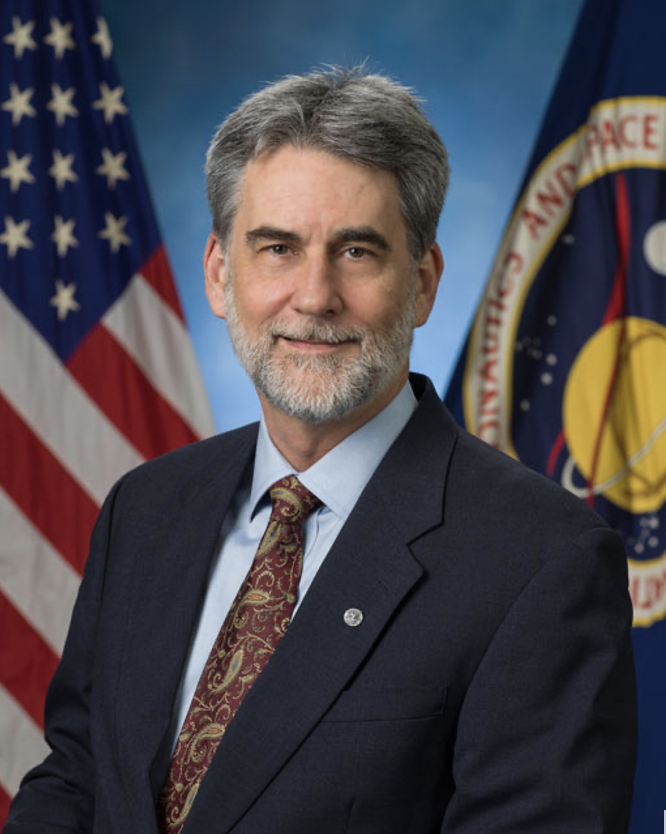
Montgomery B. Goforth
Assistant Director, Strategic Pursuits & Partnerships
Engineering Directorate, NASA JSCMr. Goforth has more than 40 years of experience as both Engineer and Manager in a variety of highly technical space and defense-related efforts. He joined NASA in 1990 as part of the Mission Operations Directorate, working on planning systems and automated procedure execution tools for the International Space Station (ISS). He became Deputy Project Manager for the Portable Computer System, the laptop used for command and control of the ISS, in 1996, and ultimately became Chief of the Branch responsible for all laptops onboard ISS and the Space Shuttle. In 2002 he moved to the ISS Avionics and Software Office as Manager of the Flight Software Development Office and later served as Chief Engineer. During 2005 he spent several months at NASA Headquarters working in the Robotics Lunar Exploration Program. In 2006 he joined the Constellation Program as Chief of Avionics and Software Test and Verification and became Chief of the Software and Avionics Integration Office in 2007. In this role he was responsible for leading a large nation-wide Systems Engineering & Integration (SE&I) organization which provided program-level coordination, oversight, integration and management of the system-of-systems avionics and software, including the coordination of integrated modeling and simulation and test activities across the Constellation program and the technical integration of Constellation’s Command, Control, Communications, and Information (C3I) architecture. In 2011, he joined the Avionic Systems Division to support their Strategic Planning and Partnership efforts. In 2015, he moved onto Engineering Directorate Staff to support Strategic Pursuits and Partnerships. In this role, he put together a framework to better focus Engineering’s efforts towards Human Spaceflight technology and systems development consistent with JSC and Agency goals for exploration. This framework guides Engineering’s internal investments and external partnerships supporting Lunar and Mars Exploration.
Mr. Goforth was born in East Texas, raised in Southern California and Arizona, and graduated from Rice University (BSME 1982, MSME 1987). Prior to coming to Johnson Space Center, he was employed by a small defense contractor specializing in anti-submarine warfare.
Panelists
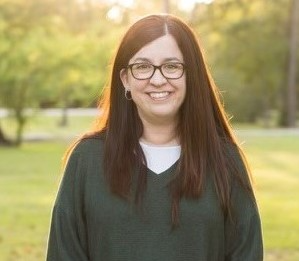
Ali Llewellyn, NASA
Ali Llewellyn is the lead for Opportunity Formulation for the Business Development and Technology Integration Office (BD&TI), where she and her team develop agreements and new strategies to support JSC’s current and future priorities.
Ali began her NASA career improving business processes in Space Life Sciences, and transitioned to education outreach in the Human Research Program, co-managing the Train Like an Astronaut project. She later became a founding member of NASA’s Open Government team, developing and executing strategies for open innovation and co-founding programs including the International Space Apps Challenge. This work developed into a number of unique initiatives including open data strategy, open source software, co-working spaces, digital transformation and future of work. Most recently she has served on the Center of Excellence for Collaborative Innovation (CoECI), leading crowdsourcing challenges for diverse NASA stakeholders and exploring new ways to activate innovators.
Ali spends her free time reading books, baking pies, and lying in hammocks dreaming about travel.
